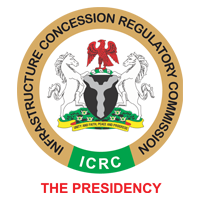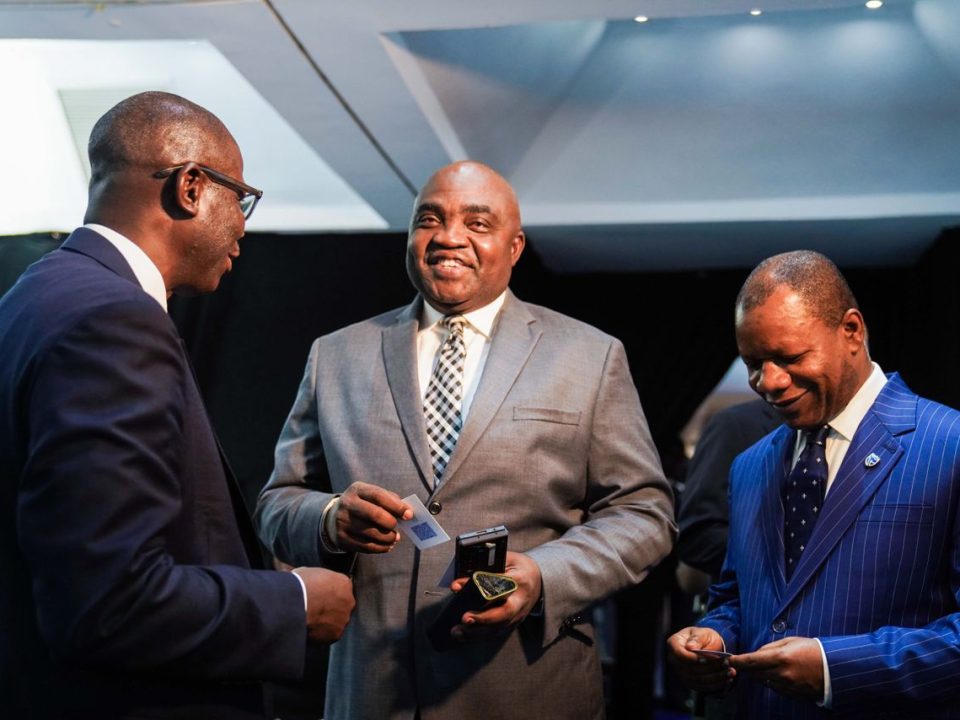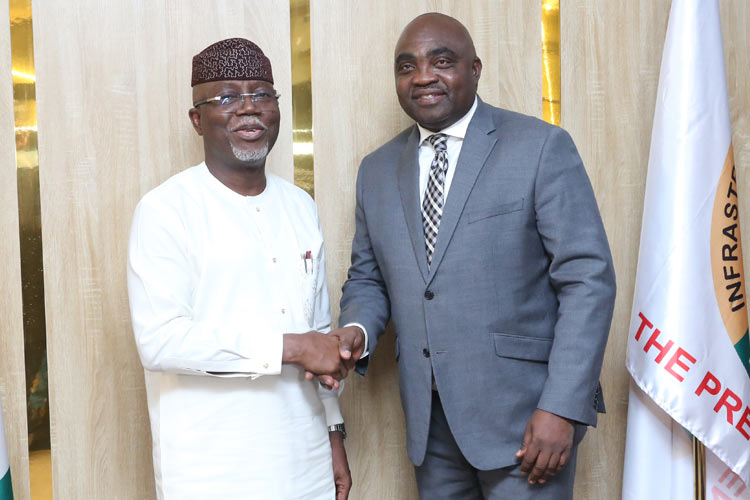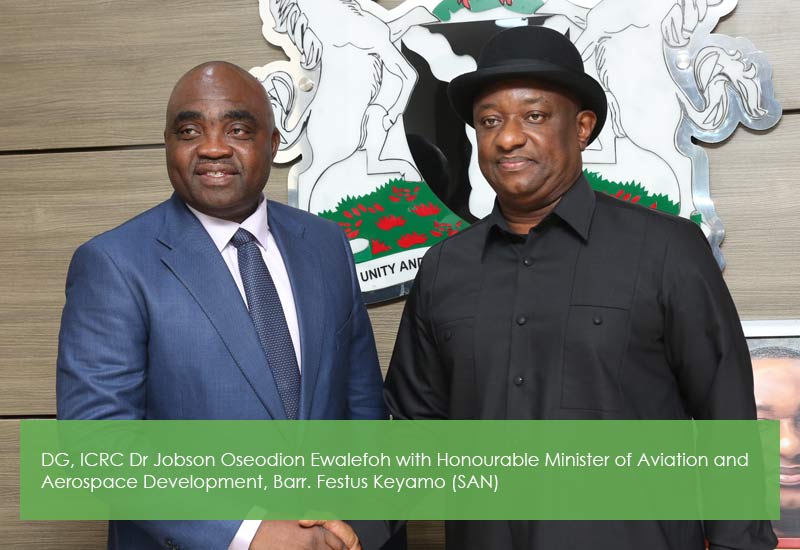There’s $120trn capital available for infrastructure investment – DG, ICRC
Engr. Chidi Kingsley Izuwah is the Acting Director General of the Infrastructure Concession Regulatory Commission, ICRC. In this interview with the Godwin Oritse, Izuwah said that there is $120trillion capital waiting to be tapped for infrastructure that will grow the nation’s economy and improve her Gross Domestic Product.
Excerpt: AS Acting Director General of the ICRC, how would you describe the general state of infrastructure in Nigeria?
Everybody is affected by the poor quality of infrastructure in Nigeria, the President himself, while speaking to the Nigerian Bar Association, NBA annual conference in 2015 talked about the huge infrastructural deficit in Nigeria across the economic sectors like the port, power, rail and roads. A good example is power, if you look at power, we are currently producing 4,000 megawatts but the standard around the world is that you need 1000 megawatts per a million people. So if Nigeria’s population is 170million, then we need 170,000 megawatts, so you see the huge gap.
For me as the Ag DG of ICRC, I am not focused on the deficit because I see it as an opportunity, I do not talk about the infrastructural deficit but I talk about a huge opportunity to deliver world class infrastructure to the country.
World class infrastructure
A good example is that 16 years ago, how many phones lines did we have in Nigeria, we had less than 400,000 phone lines working and at that particular time we had about 5million Nigerians who had applied to NITEL and waiting for phone lines and about 10million Nigerians who were on the queue waiting to be allowed to get into the various NITEL offices. You remember people hire people to stand on the queue for them to make calls. But some people saw that as an opportunity. Today with the private sector participation, we have 150million telephone lines.
So really for me I do not want to dwell on the deficit but dwell on the opportunities available to provide world class infrastructure whether in roads, world class hospitals, world class schools and world class accommodations across the country.
So that we may have an infrastructure sufficient Nigeria and an infrastructure sufficient Nigeria will be economically competitive, we will create jobs, we create a globally competitive economy, and we have tourists. It will be a wonderful place to live.
Yes we have a deficit, I do not see the deficit, I see the opportunities and that opportunity is an opportunity for us to be a force for good. And that is my role as the Ag-Director General of ICRC to create the regulatory framework that would allow the private sector to come in and partner with government and create these infrastructure like it has been done in other parts of the world, like South Africa, Malaysia and other places. We Nigerians can do the same thing.
What are the challenges you see in the course of providing the regulatory frame work.
There were a number of challenges. The first challenge we had was because what we are driving is the private –public (PPP) sector participation in providing infrastructure. The private sector will invest money to provide infrastructure and then recover the money over a period of time. One of the major problems we had is capacity, awareness and understanding of that type of methodology.
That is one problem we had, because it is a very complex and sophisticated model, projects have to be prepared well and made bankable before you can take them to the markets. That is a major problem we had.
The second challenge we had is what we call project development funding because for you to prepare that project, to do the feasibility study, to do the traffic study, you need to be able to demonstrate to the private sector that these projects are bankable, you require money to do it. The consultants who do these work are very expensive consultants and it is a methodology that is not very common.
We had to bring in foreigners to help us build our capacity like what is done elsewhere. The third challenge is budgetary allocation, even in the existing concession we have, ICRC has a legal responsibility to ensure enforcement, ensure that these concessions are well delivered, we require budgetary funding to support us, to be able to look at them, to study those concession agreements and make sure the entire project goes well.
So those are some of the key challenges that we face.
There is also the issue of private sector capacity. Assuming for now that Nigeria is said to need about will 2,000 kilometers of road, even if we have all the money, do we have enough contractors who can deliver that? There is the issue of long term funding, infrastructure require long term funding, low interest long term funding but the macroeconomic challenges we face also affect that ability. Take a look at bond markets, around the world infrastructures are mainly financed with capital market bond.
I had a meeting with the Director General of the Nigerian Stock Exchange, Mr. Oscar Onyema, and we are looking at ways to work so that we can create a system that can do it. We are doing a lot of things to be able to address these challenges.
On the issue of capacity building, yesterday, we came on a courtesy call on the Nigerian Shippers’ Council and immediately we identified a gap, we did a training and all the people that went through that training are going to be certified and become more knowledgeable in doing PPP and we are doing that across the MDAs (Ministries, Departments and Agencies of the government).
As we speak now we are working together to adopt the World Bank certification training so that it becomes a standard training for Nigerians so that Nigerians can have an appreciable knowledge of the PPP model.
The World training programme has three levels namely the awareness level, intermediate level and professional level. We want a situation that anybody that will want to work on the PPP model will have that training. We are also working with the Ministry of Budget and National Planning to provide additional funding for project development.
We are working with Development Finance Institutions like the African Development Bank, Global Infrastructure Hub, International Finance Corporation and other development finance institutions.
We are going around the world trying to talk to people that Nigeria is the next frontier for infrastructure for them to come here and work with us. These are some of the things we are aggressively doing to confront these challenges.
What is the major mandate your Commission has in tackling this infrastructure deficit?
The mandate we have is to create the framework, the aim of a regulator is to create a framework for the private sector to invest. To create enabling environment for investment.
What did NCC do, without building the mast tower, they put in the framework for the private sector to invest.
Our role as ICRC is to create that same framework that create comfort that will make people know that Nigeria is the most attractive and best investment destination and once we do that very successfully, the private sector will be encouraged to bring the capital, partner with our people.
I talked about bankable project so that the private sector will bring bankable projects into the market and also the private sector will know that there is an independent agency that is able to do that. And in total compliance, the private sector knows that there is an independent regulator they can go to if they have problem.
So you do not have situation where the government agency who is the grantor of the concession or the PPP is also the regulator. So our main role is to put in that regulatory framework and once we put in that regulatory framework other things will fall into place.
Regulatory framework
Part of what we are trying to do is that we are working together to generate an Executive Order. That Executive Order will be focused on methodology for accelerating PPPs in Nigeria.
We are hoping that we can do it and that we can present to the Presidency and that the Presidency will find it good and fit enough to approve the draft Executive Order and then it will be something that will become a mechanism because the ICRC Act in the National Assembly will take some time, but we need these infrastructures now, you need to go to our universities to see where the students sleep, it is disheartening.
What you are saying now is that all infrastructure government has interest in your agency must be able to regulate it for PPP development
Not all infrastructures are PPP-able. PPP is a procurement methodology. Government has three ways it procures services; the first one is the traditional procurement where government pays through the budget. The second one is privatization where government will divest her interest and the third one is PPP where it partners with the private sector. Not everything is PPP-able. Anything that is PPP-able, must have sufficient revenue to reward the investor.
However, what we do is that when government choose their PPP project, and you want to do a PPP methodology, we regulate.
Like our roads, if you go across the border in Benin Republic, they toll the roads, the roads are self-financing by themselves. Government do not have to bring out the upfront money. The treasury has constraints; the Minister of Finance has made it very clear to us.
And there is a lot of private capital around the world; I can show the information here on my ipad that demonstrate that around the world there is a $120trillion of capital that is available under management by banks.
We should be able to attract that money that is what is important. We attracted it for the mobile phone industry. We should attract for the hospitals, health. Tourism in Nigeria is a $1billion industry. I am sure some of us have contributed money for somebody to be taken to India for treatment, did we do those things in the 1970s. Don’t people remember that the University College Hospital in Ibadan used to be referral hospital for the entire West Africa?
So this is what we want to go back.
It is in our interest to do this and provide these infrastructures for ourselves. People will fly to Owerri to go to Onitsha, does that make sense, why does he do it, because there is no road infrastructure. The example I often give people is that, there is a road in Malaysia that runs from the Thai border down to Jahol which transverses the whole country.
That road used to take 19 hours to travel, they awarded a contract and concessioned that road to a private firm and when it was completed, it dropped the travel time from 19 hours to 6 hours and businesses developed on that road. Look at Lagos-Ibadan expressway, that road has a direct impact on our Gross Domestic Product, GDP. The samething with Sagamu-Benin-Asaba road. These type of infrastructure are PPP-able and viable because of the traffic. We should get the private sector to turn them into world class roads and create economic corridors.
Because that is how a country develop. You will have a Lagos-Ibadan-Ilorin-Ogbomosho to Kaduna economic corridor.
You will have a Sagamu-Benin-Asaba-Onitsha-Enugu to Port-Harcourt economic corridor.
You will have another corridor from Enugu up to Maiduguri, you will have from Kano to other parts of the country. When you have economic corridors because transportation is very critical, you are able to move goods and services.



